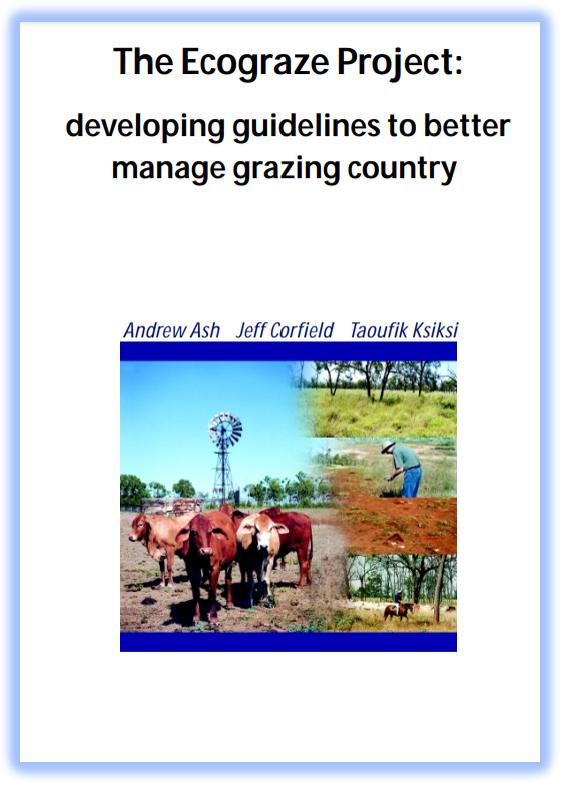EcoGraze project: developing guidelines to better manage grazing country
 The Ecograze project increased understanding of how pastures in different condition responds to grazing, spelling and fire. From these learnings grazing management options were developed.
The Ecograze project increased understanding of how pastures in different condition responds to grazing, spelling and fire. From these learnings grazing management options were developed.
The trial that underpinned these recommendations featured grazing plots on three land types in north eastern Queensland, either in good condition or a deteriorated condition.
At each site, and in each land condition, three different utilisation rates were imposed; 25%, 50% and 75%.
The utilisation treatments aimed to achieve a wide range of grazing pressures from conservative to very high. In addition to these continuous grazing treatments wet season spelling treatments were included. Wet season spelling was imposed following the first significant rainfall event (>50 mm over two days) from November onwards. Paddocks were spelled for eight weeks and then the grazing treatments were reimposed. Each year measurements were made of pasture composition, forage availability, grazing preferences, and soil condition.
The key findings of the field research and the economic modelling have been:
• Grazing management, not climate, is the key driver of land condition and pasture health.
• Land was maintained in good condition by continuous stocking at 25% utilization or early wet season spelling followed by 50% utilization.
• As perennial grasses are lost through overgrazing, rainfall effectiveness declines, pasture productivity is reduced and the system becomes desertified.
• Continuous stocking at 25% utilization or early wet season spelling followed by 50% utilization recovers native tussock perennial grasses in poor condition pastures, even during drought years.
• The value of wet season spelling is enormous and where a wet season spelling regime can be implemented it can provide increased flexibility to enterprise management.
• Wet season spelling can be implemented using fairly simple two, three or four paddock grazing systems.
• Cash flows between good and deteriorated pasture condition were on average not greatly different but pastures in a deteriorated condition gave more variable returns and there were more years in which losses occurred. If deteriorated pastures become degraded, the loss of productivity and increased supplementation costs can lead to huge financial losses.
• Where wet season spelling is introduced and overall utilisation rates can be sustainably increased then cash flows can be improved even allowing for the capital costs of infrastructure developments such as water and fencing.
Read it all: Ecograze Manual (PDF, 8.3 MB)
Read more about the Ecograze project (Meat & Livestock Australia)